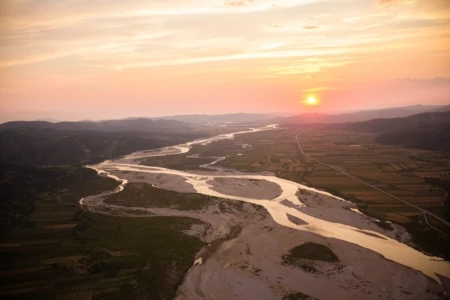Save the Blue Heart of Europe: The Balkan Rivers story
The Balkan Peninsula in southeastern Europe is known for its Mediterranean beaches, past wars, corruption, ethnic conflicts and, to insiders, Slivovitz and ćevapi—the plum schnapps and traditional minced-meat dish of the region. Stories about the area are plentiful, but I want to tell you a different story—a story about beauty, diversity and uniqueness, and an imminent threat in disguise.
It is a story about the rivers between Slovenia and Albania, which are the most intact on the entire continent. Wild rivers with extensive gravel banks, spectacular waterfalls, deep canyons, crystal clear streams full of fish, large alluvial forests where rare eagles nest, even karstic underground rivers. But, most amazingly, almost nobody knows about them. They’re a hidden treasure in the middle of 21st century Europe.
I have always been a river person, a river freak if you will. I grew up in a small town near a little river in central Germany where I learned to catch trout with my bare hands and build huts in willow trees. Then, in the 1980s, a dam was constructed upstream and everything changed. The water level dropped dramatically and my personal paradise disappeared. Since then I have been working to protect rivers, which mostly means fighting against dam projects. I did this work for over 17 years at World Wildlife Fund Austria and have continued it, since 2012, as CEO of Riverwatch, an NGO focusing on the protection of rivers.
Some years ago, Riverwatch and the German NGO EuroNatur had an unusual idea about the Balkan rivers: to fight not only for the protection of a single river, or even a stretch of river, but for all of the Balkan rivers—a huge challenge. In 2013, we launched the Save the Blue Heart of Europe campaign. The first step was to assess the morphology of the rivers, the biodiversity, protected areas, threats, etc. The outcome was astonishing: 11,000 river kilometers are in pristine, or near natural state, and another 17,000 river kilometers are in good, or satisfying morphological condition—this represents 80% of all river kilometers in the region.
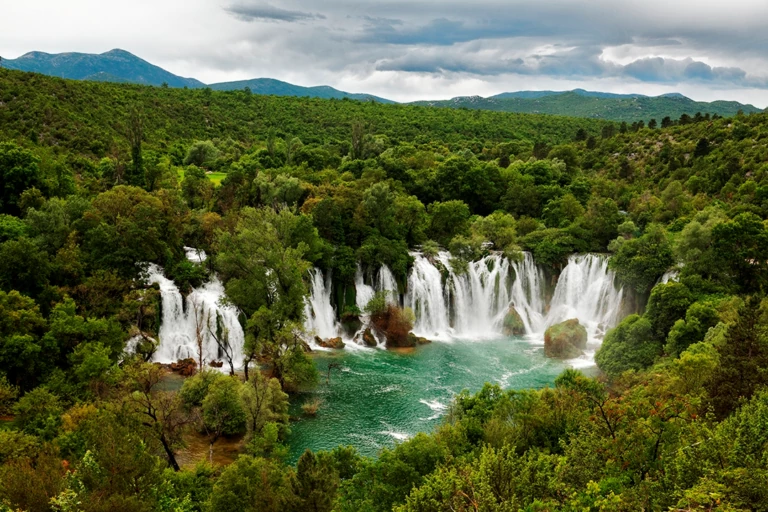
Kravice Waterfalls, Bosnia and Herzegovina. Photo: Goran Safarek
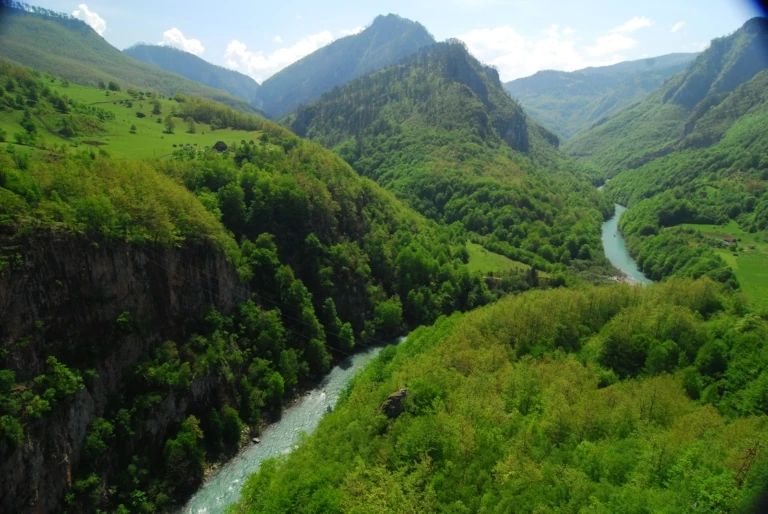
Tara River, Montenegro. Photo: Anton Vorauer
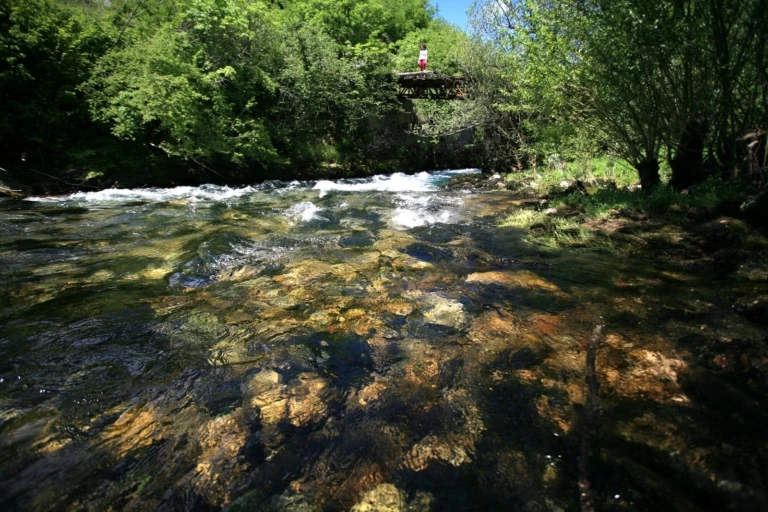
Sana River, Bosnia and Herzegovina. Photo: Luka Tomac
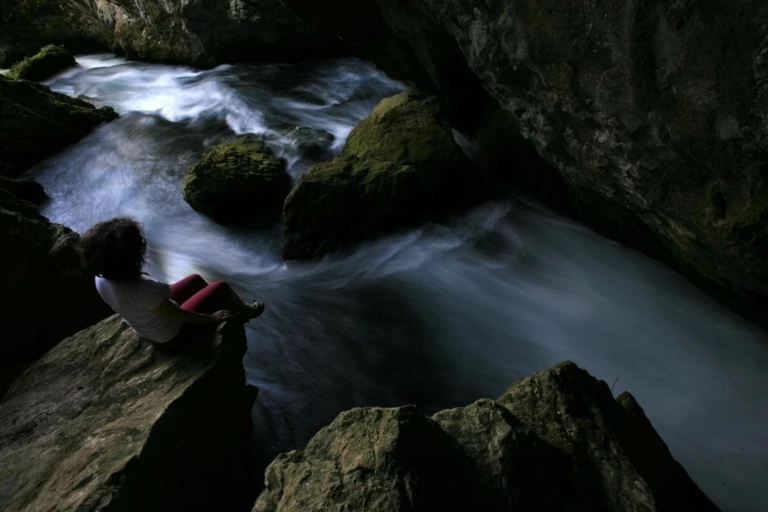
Sana River, Bosnia and Herzegovina. Photo: Luka Tomac
The quality of these rivers is without par in Europe.
And so is the biodiversity of their fish populations. Sixty-nine species are endemic to these rivers; they live here and nowhere else on the planet. These rivers are especially famous for trout species like the Marble, Softmouth and Prespa. But the most outstanding fish of them all is the Huchen, or Danube salmon, a globally threatened species that lives only in the Danube basin.
So much for the good news. The bad news is there are more than 2,700 hydropower plants planned for the region. The entire river network is at risk; not even protected areas, or those hosting endangered species, will be spared. Approximately 113 dam projects would be inside national parks, another 133 inside Natura 2000 sites and many more in other protected areas. What’s worse, the destruction of these rivers is supported, to a large extent, by international financial institutions like the World Bank and the European Bank for Reconstruction and Development (EBRD), and carried out by Western European companies. They promote dam projects as green investments, defending the destruction of nature as climate protection. Arguments like these are being used at the Sana River in Bosnia and Herzegovina, where a dam project is being constructed by an energy company from Austria in the middle of one of the best Huchen stretches in nature.
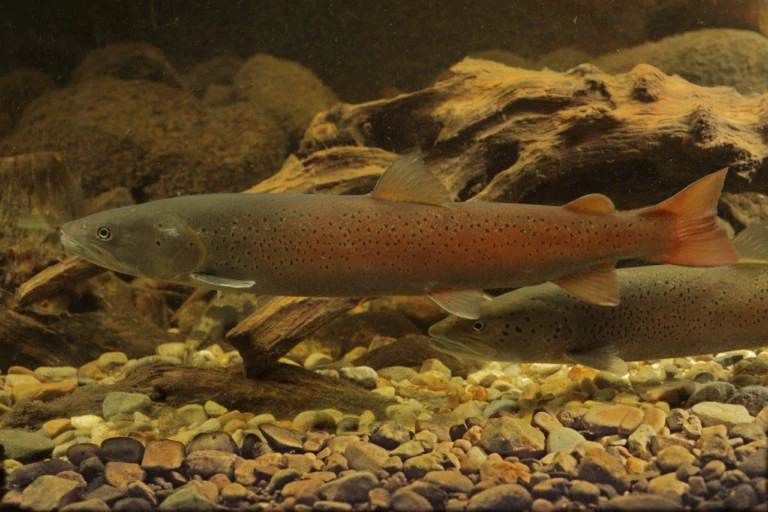
Young, male Huchen (Hucho hucho). Photo: A. Hartl
Our campaign, however, has already yielded some successes. The government of Macedonia, for instance, wanted to construct several hydropower plants in Mavrovo National Park. The two biggest schemes were to be financed by the World Bank and the EBRD. While undermining the very idea of a national park, they would have also destroyed the main habitat of the Balkan lynx, a very rare subspecies of the Eurasian lynx. Last December, our protest activities forced the banks to pull back from the projects. Mavrovo National Park and the habitat of the Balkan lynx are safe for the time being. Furthermore, our campaign is encouraging more and more people to stand up for their rivers as they see them promoted in international media.
Fortunately, the Balkans are still full of river wonders. One of the greatest wonders is the Vjosa in Albania, the last big, wild river in Europe outside of Russia. For almost 270 kilometers, from the mountains in Greece to the Adriatic Sea, she flows freely without any artificial obstacles. No dams, no levees, nothing but nature. Scientifically, this river is unexplored. We probably know more about the Amazon than about this river. Nevertheless, the Albanian government recently announced their intent to dam the Vjosa. We have a contrary vision in mind. We want the Vjosa to be protected as a national park, the first Wild River National Park in Europe. It would not only save this natural European treasure, but also guarantee sustainable income for local communities. For this reason, the people of the valley support our idea and oppose the projected dams.
In order to save the Vjosa and other Balkan rivers, we have to make their uniqueness, and their threats, visible. We need to make them an international issue. To do this, our campaign needs partners: fly fishers, paddlers and other nature lovers from all over the world. I am very happy that Patagonia has become our campaign partner. Between April and May of this year we are organizing a joint campaign event, the Save the Balkan Rivers Tour. Led by former Slovenian Olympic athlete, Rok Rozman, kayakers from all over Europe are invited to jointly paddle the Balkan rivers. The grand finale of the tour will be a flotilla event on the Vjosa, and a rally in the Albanian capital of Tirana to protest the dam projects. The tour is a unique opportunity for kayakers and journalists to discover these stunning rivers. If you have the chance, join us!
To me and many others, saving the Balkan rivers is the single most important nature conservation issue in Europe. We are aware that the challenge is huge and even a bit crazy. But how often do you get the chance to save a continental heritage? One day, people from all over the world will come to the Balkans to see Europe’s Blue Heart still beating. We will fight for it.
By the way, after decades of fights, my little hometown river will run free again this year. The two dams upstream are going to be opened up. In the 1980s, that too was a completely crazy vision.
